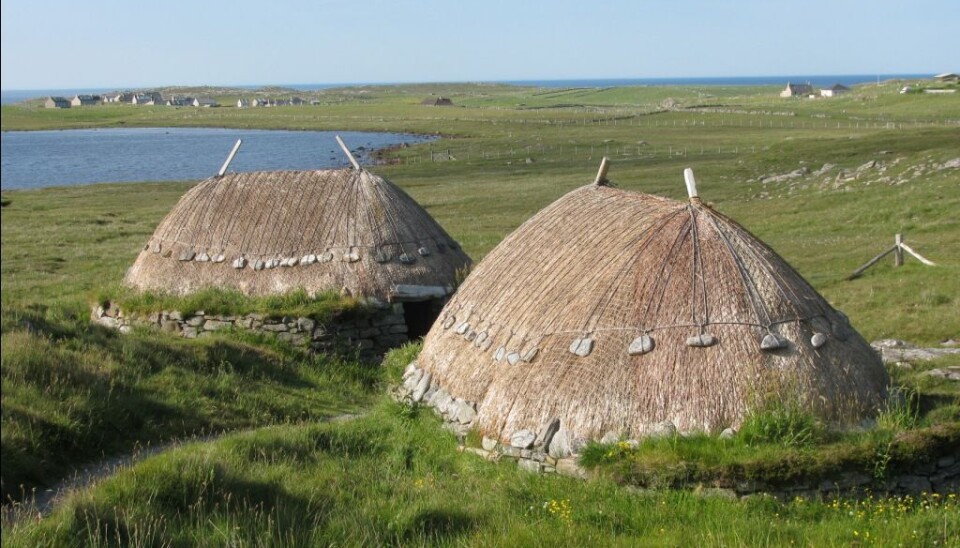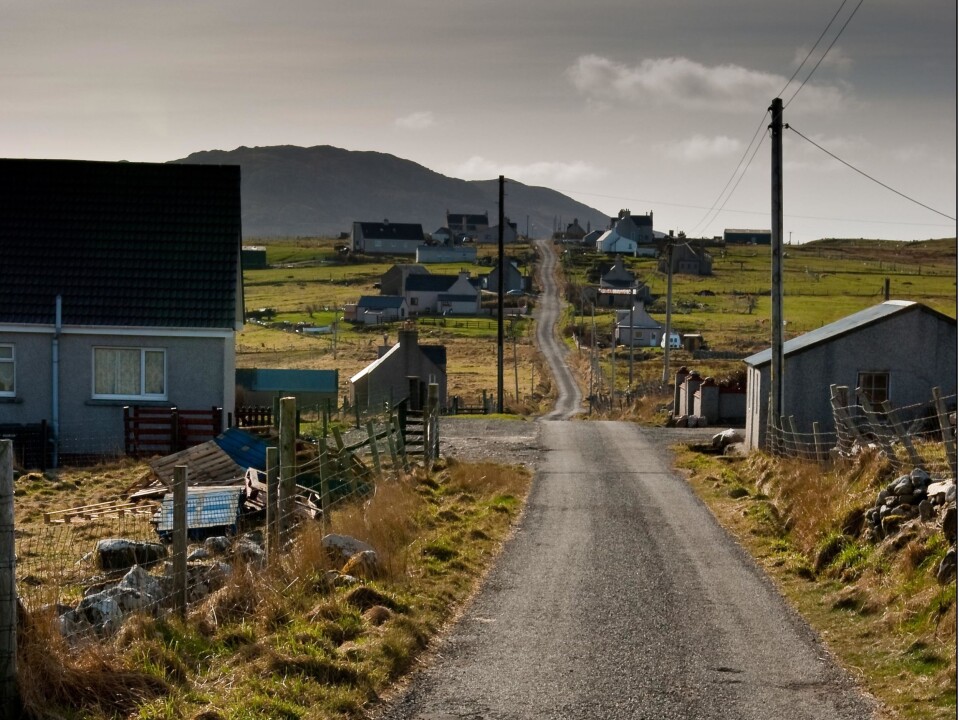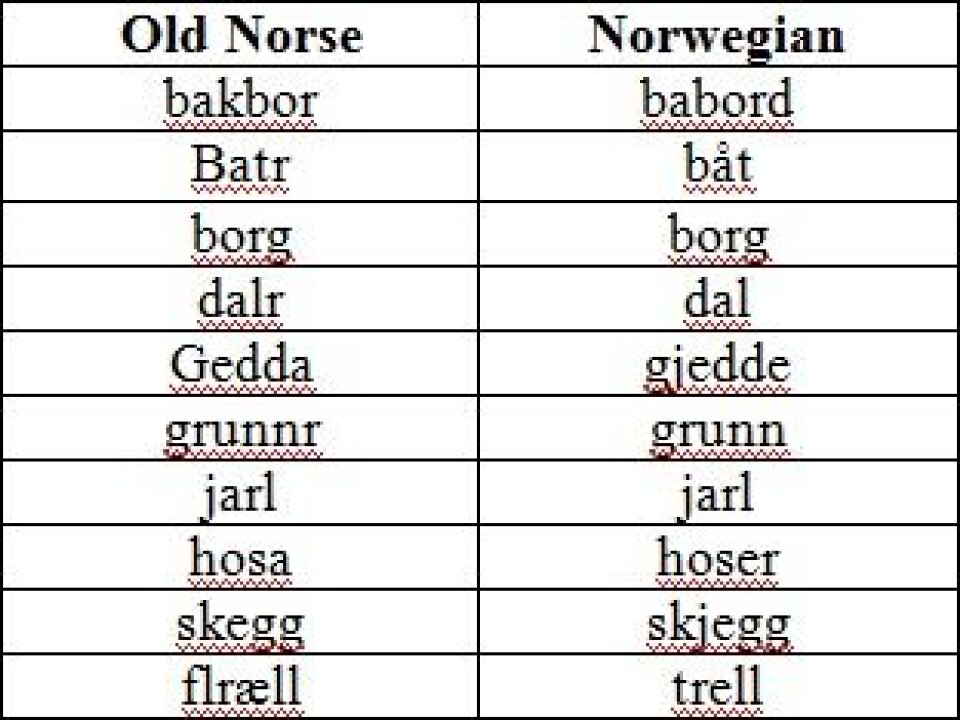An article from University of Tromsø – The Arctic University of Norway

Leaving tracks − with words
Scandinavians left more than just archaeological artefacts when they conquered parts of the British Isles − the Scottish language is full of it.
Denne artikkelen er over ti år gammel og kan inneholde utdatert informasjon.
From the beginning of the 9th century AD through the 11th century AD, Vikings raided the coast of the British Isles. But there were also quite a number of Scandinavians who chose to settle there.
Evidence of their impact can be found even today in Scottish Gaelic, Irish and partly in English.
The Scottish Gaelic word trosg (cod in English, torsk in Norwegian) and stòl (stool in English, krakk in Norwegian) have their origins in Old Norse. So do the English words window (vindu in Norwegian) and sky (himmel in Norwegian).
There were many Scandinavian settlements along the coast, and many settlers specifically went to Scotland.

“It was natural for them to stay there because it was close to the ocean," says Pavel Iosad, a PhD candidate at the Center for Advanced Study in Theoretical Linguistics (CASTL) at the University of Tromsø.
Place names
The Scottish Gaelic language has traditionally been very strong on the Isle of Lewis in the Hebrides, off the west coast of Scotland. The Gaelic name of the site is Leòdhas, which many believe comes from the Scandinavian name Ljo›ahús. This is a compound word, comprised of a person's name and the word for residence or home.
Iosad says what is special about this area is that up to 90 percent of all place names have Nordic origins. Place names are clearly the most visible influence.
Many of the names end with suffixes such as -bost, including Siabost and Làbost. Bost comes from the Old Norse word bolsta∂r, or "bosted" in Norwegian, which means residence.
Borrowed words

When two languages come into contact with each other, it is common for words to be borrowed from the other language. These are words that we don't have an equivalent word for in our own language.
Since the Scandinavian immigrants who settled on the coast of Scotland engaged in fishing, many words related to the sea, boats and various fishing gear gained ground in the Scottish language.
For example, the Old Norse word Batr was Bata to the Scottish, which means boat, and bakbor>, which became bacbhord and means port.
According to Iosad when two languages come into contact, the grammar of both languages often also gets easier.
English grammar is in many ways simplified compared to Old English, which is probably as a result of the influence of other languages. Old Irish was also radically changed at precisely the time when the Scandinavians were there.
Immigration and linguistic influences also went the other way; a number of Irish monks went to Scandinavian countries and settled. Some Scandinavians also took Irish wives and slaves with them when they returned home.
Language under pressure
Scottish has been in a steep decline for some time, and is one of the many languages in the world that is in danger of disappearing.
"Today, mostly older people speak it, and it should come as no surprise that a lot of rural areas in Scotland are losing population," says Iosad. “At the same time there are some bright spots. In Glasgow, for example, there is a school where all the instruction is in Scottish Gaelic.”






























